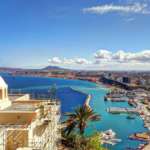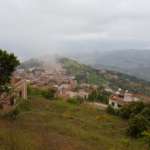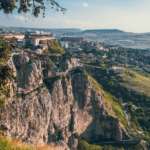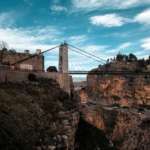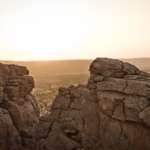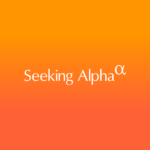A Closer Look at Algeria
Algeria Flag

Algeria Formation Date
July 5, 1962
Algeria Capital Name
Algiers
Algeria Neighbours
Exploring Algeria
Origin of Algeria
Algeria is located in the northern part of Africa and is bordered by the Mediterranean Sea in the north. The area of Algeria is almost 2.4 million square kilometers and most of its land is dominated by the Sahara Desert. Algeria is the world’s 10th-largest country. It has significant deposits of petroleum and natural gas that are traditionally being explored in the area of Constantine and Ain Salah. The name of Algeria has its roots in the Arabic word “Al-Jazair” which literally means “the islands”. Algeria was colonized by the French in 1830 and continued to be a French colony until 1962 when it achieved its independence. Since then, the nation has seen a few military coups and civil unrest, but has remained relatively stable, despite its history of civil war in the late 1980s and early 1990s.Culture of Algeria
The culture of Algeria is a blend of several different cultures including Berber, Arab, Andalusian and French influences. The culture of Algeria has been shaped over time by a number of different factors. Berber is the indigenous language of Algeria and is still spoken by a large number of citizens. Arabic is the official language of the nation, while French is widely used in business and educational contexts. Other languages spoken in the country include Tamazight, Spanish and Italian. Algerian culture is heavily influenced by Islam and Islamic traditions. Islam is the main faith of the nation, with over 90% of the population identifying as Muslim. Sufi orders and Islamic brotherhoods are very popular among Algerians, particularly in rural areas. The doctrine of Sufism is very important for Algerian culture and religious customs.Sport in Algeria
Sports are very popular in Algeria and the nation is home to a number of professional sports teams. Football (soccer) is the most popular sport in Algeria, and the country’s national team often competes in the African Cup of Nations. Cricket is also popular in the country, especially in the northern coastal cities of Oran and Algiers. The Algerian national cricket team has also participated in the regional ICC Africa tournaments. Other popular sports in Algeria include tennis, basketball, volleyball and handball.Religion in Algeria
Islam is the main religion of Algeria with over 99% of the population identifying as Muslims. The majority of Muslims in the country are Sunni and they are divided into different Sufi orders. Most of Algeria's Muslims follow Sunni traditionalism, which is the most traditional of the Islamic schools of thought. The remainder of the population is made up of Christians, Jews, and other minority religious groups. Christians represent around 0.5% of the total population. The majority of the Christians are Roman Catholic and they are mostly of French and Italian descent.Languages in Algeria
Arabic is the official language of Algeria and it is the language of government, education, and media. The majority of the population speaks a dialect of Arabic referred to as Algerian Arabic. French is widely used in business, education, and media circles. Tamazight is also spoken in the country by many Berber speakers. Other languages spoken in the country include Spanish, Italian, and other minority languages.Education in Algeria
Education is compulsory in Algeria for children aged 6 to 15 and free education is provided by the state. The literacy rate in Algeria was estimated to be 77% in 2017. The educational system in Algeria is managed by the Ministry of Education at the national level. Free primary and secondary education is offered in the state, and there are also numerous universities in the country. Many of the universities emphasize sciences and engineering over the humanities.Demographics of Algeria
The majority of the population of Algeria is made up of Arabs and Berbers who are native to the country. The Arabs are largely Sunni Muslims, while the Berbers are predominantly Sunni Muslims with small populations of Christians and Jews. The population of Algeria is estimated to be around 41 million in 2020. The majority of the population of Algeria, around 85%, live in urbanized areas. The major urban centers are Algiers, the capital city, Oran, Annaba, Sétif, and Constantine.Commerce of Algeria
Algeria is an important trading partner in the region and is a growing hub for international commerce. The country’s economy is dominated by oil and gas production and exports, which account for around 95% of export revenue. Algeria’s major export partners are India, France, Italy, Spain, and China. Algeria’s main imports are goods such as refined petroleum from France and Italy, and vehicles from Spain. Other imports include machinery, medical equipment, food products, and chemicals. Algeria’s major import partners are China, France, Italy, the United States, and Spain.Weather in Algeria
Algeria is located on the Mediterranean Sea and is subject to Mediterranean climates with warm, dry summers and mild, wet winters. The temperatures in Algeria are hot in the summer months withregular temperatures exceeding 40 degrees Celsius. Winters tend to be mild and temperatures hover around 15 degrees Celsius. Precipitation in Algeria is scarce in the summer months and increases in the winter months. The terrain varies from desert to mountainous and thus temperatures in Algeria tend to vary greatly depending on the region and season.Borders of Algeria
Algeria has a long border of almost 2,900 kilometers with Morocco to the west, Tunisia to the northeast, Libya to the east, Mali and Mauritania to the south, and Niger to the southeast. Algeria also has a maritime border of 887 kilometers with Spain.Algeria Image Gallery
Algeria Highest Point Name
The highest point in Algeria is Mount Tahat, with an elevation of 9,102 feet (2,788 meters). It is located in the Ahaggar Mountains of the Sahara Desert in the central south of the country.
Algeria Highest Point Value
3,003 m
Algeria Capital Longitude
36° 45' N
Algeria Capital Latitude
3° 2' E
Algeria Official Languages
Arabic, Berber, French (administration, business and education), Algerian Arabic (Darja) (lingua franca)
Algeria Ethnic Groups
The population of Algeria is made up of a diverse mix of ethnic groups from all across the continent. The largest group is the Berbers (or Amazigh) who make up about 70% of the population and are native to the area. Additionally, there is a sizeable Arab population (20%), as well as smaller groups such as Turks, Kabyle, and Chaoui. There is a minority of Europeans (mainly French) and sub-Saharan African immigrants who have resettled in the country or are of mixed descent. Small numbers of Roma and Jews also live in Algeria, as well as some smaller ethnic groups in the desert regions of the south.
Algeria Religions
Islam is the official religion of Algeria and its adherents account for 99% of the population. The vast majority of Muslims in Algeria are Sunnis, although a notable minority practice Ibadism, a form of Islam found mainly in North Africa and parts of the Arabian Peninsula. Other religions present in the country include Christianity and Judaism. Christianity is primarily practiced by expatriates and foreign communities within Algeria, with the Catholic Church having the most adherents. Judaism has been present in Algeria since the Roman era, although its adherents now constitute a tiny minority. The government protects the rights of religious minority groups and there have been recent progressions in legislation in regards to freedom of worship.
Algeria Total Area
2,381,741 km2
Algeria Land Area
2,355,541.849 km2
Algeria Water Area
26,199.151 km2
Algeria Total Population
42 million
Algeria Currency Name
Dinar
Algeria Currency Code
DZD
Algeria Currency Symbol
دج
Algeria Time Zones
- Standard Time: UTC+01:00
- Daylight Saving Time: UTC+02:00
In Algeria the standard time zone is UTC+1. This is also the same time as Central European Time (CET). During Daylight Saving Time (DST) the time is shifted forward by one hour, creating UTC+2. DST is in effect from the last Friday in March until the last Friday in October. During this period, the clocks in Algeria move to UTC+2.
Algeria Calling Code
+213
Algeria Internet TLD
www.aveholidays.dz
How to Say "Algeria" In Different Languages?
- Bengali
- আলজেরিয়া (bn-BD)
- Croatian
- Alžir (hr-HR)
- Finnish
- Algeria (fi-FI)
- French
- Algérie (fr-FR)
- German
- Algerien (de-DE)
- Greek
- Αλγερία (el-GR)
- Hindi
- अल्जीरिया (hi-IN)
- Indonesian
- Algeria (id-ID)
- Italian
- Algeria (it-IT)
- Japanese
- アルジェリア (ja-JP)
- Korean
- 알제리 (ko-KR)
- Malay
- Aljazair (ms-MY)
- Polish
- Algieria (pl-PL)
- Portuguese
- Argélia (pt-PT)
- Romanian
- Algeria (ro-RO)
- Russian
- Алжир (ru-RU)
- Spanish
- Argelia (es-ES)
- Italian
- Algeria (it-CH)
- Turkish
- Cezayir (tr-TR)
- Ukrainian
- Алжир (uk-UA)
Algeria Popular Holidays
- Holly Eid al-fitr (end of Ramadan)
- July (variable) (August (variable))
- Aïd el-Kebir (Kurban Bayramı)
- 10 or 11 Dhu or Dhul Hijjah (12 or 13 Dhu or Dhul Hijjah)
- Ashura (Remembrance)
- 9 or 10 Muharram
- Eid al-Mawlid al-nabi
- 12 Rabi or Rabīʿ al-Awwal
- Al-Hijra New Year
- 1 Muharram
- Eid al-Adha (Feast of Sacrifice)
- 10 or 11 Dhu or Dhul Hijjah (12 or 13 Dhu or Dhul Hijjah)
- Eid ul-Adha (Feast of Sacrifice)
- 10 or 11 Dhu or Dhul Hijjah (12 or 13 Dhu or Dhul Hijjah)
- Eid ul-Fitr (End of Ramadan)
- 1 or 2 Shawwal (3 Shawwal)
- Tobaski (Tabaski)
- 10 or 11 Dhu or Dhul Hijjah (12 or 13 Dhu or Dhul Hijjah)
- Mouloud
- 17 Rabi or Rabīʿ al-Awwal
- Lailat al-Meiraj (Ascension of Muhammad)
- 27 Rajab
- Eid al-Mawlid (Milad un Nabi)
- 12 Rabi or Rabīʿ al-Awwal
- Al-Mawlid al-Nabawi
- 12 Rabi or Rabīʿ al-Awwal
- Eid al-Adha
- 10 or 11 Dhu or Dhul Hijjah (12 or 13 Dhu or Dhul Hijjah)
- Eid Al-Fitr
- 1 or 2 Shawwal (3 Shawwal)
- Eid al-Adha (Feast of Sacrifice)
- 10 or 11 Dhu or Dhul Hijjah (12 or 13 Dhu or Dhul Hijjah)
- Prophet Muhammad's Birthday(Mawlid)
- 12 Rabi or Rabīʿ al-Awwal
- Feast of Sacrifice (Kurban Bayramı)
- 10 or 11 Dhu or Dhul Hijjah (12 or 13 Dhu or Dhul Hijjah)
- Ramadan
- May (variable) (June (variable))
- Eid al-Fitr (End of Ramadan)
- 1 or 2 Shawwal (3 Shawwal)
- New Year's Day
- 1 January
- Peace Anniversary
- 11 January
- Algerian National Awakening Day
- 22 February
- Revolution of 1954 Commemoration Day
- 24 February
- Women's Day
- 8 March
- International Women's Day
- 8 March
- Image of the Father’s Day
- 19 March ( 19 March)
- International Mother's Day
- 21 March ( 21 March)
- La Yemma (Mother's Day)
- 26 March
- Revolution of 1960 Commemoration Day
- 1 April
- Army Day
- 1 April
- International Remembrance Day
- 3 April
- Labour Day
- 1 May
- Labor Day
- 1 May
- Whit Monday
- 7 May
- Victory Day (Second World War)
- 8 May
- Days of Evenings at Home
- May (June)
- Martyrs of the Revolution Day
- 11 May
- National Martyrs’ Memory Day
- 5 July
- National Day
- 5 July
- Independence Day (First-Time Public Holiday)
- 5 July
- Independence Day
- 5 July
- Liberation Day
- 5 July
- Algerian Independence Day
- 5 July
- Tagdecla
- 3 August
- Hospital Day
- 5 August
- World Student Day
- 7 August
- International Youth Day
- 12 August
- Mascarets (Festival of Remembrance)
- 15 August
- Revolution of 1963 Commemoration Day
- 20 August
- Tamkharit (Harvest Festival)
- 26 August
- Departure of Muhammad from Mecca
- 2 September
- Algerian War of Independence Day
- 7 September
- Feast of the Holy Cross
- 14 September
- Revolution of 1971 Commemoration Day
- 14 September
- National Souk Arba'een Day
- 4 October
- Revolution of 1962 Commemoration
- 1 November
- Martyrs of the Revolution Commemoration Day
- 10 November
- Algerian Revolution Day
- 19 November
- International Children's Day
- 20 November
- Fes Festival of Sufi Culture
- 7 December (10 December)
- International Human Rights Day
- 10 December
- New Year's Eve
- 31 December


